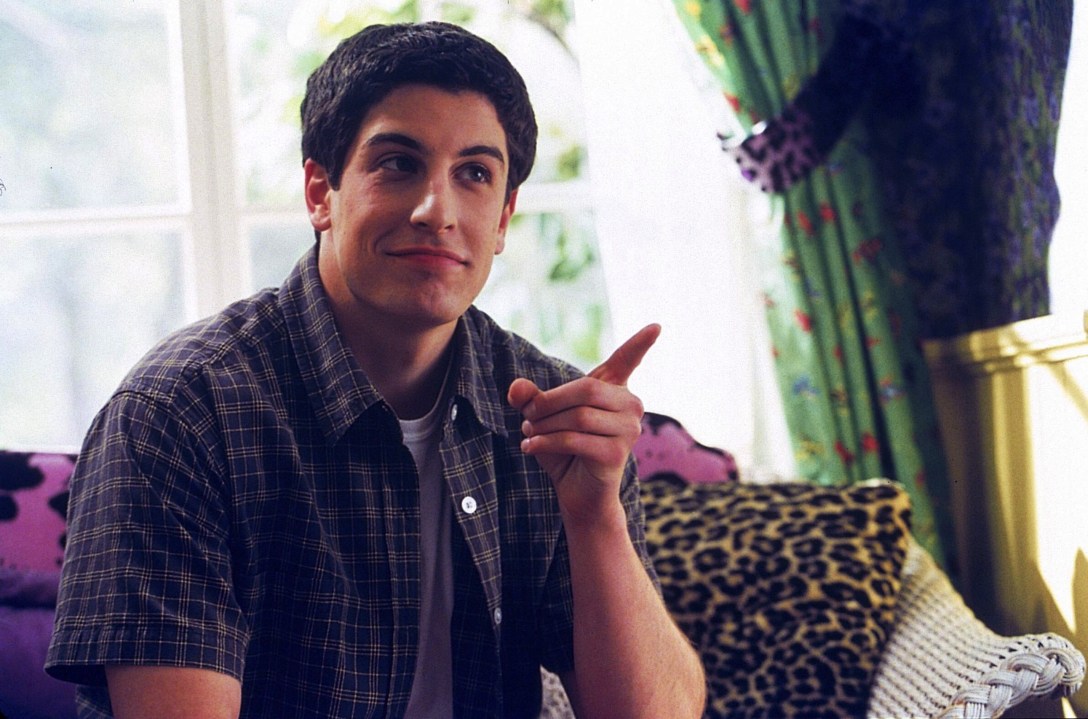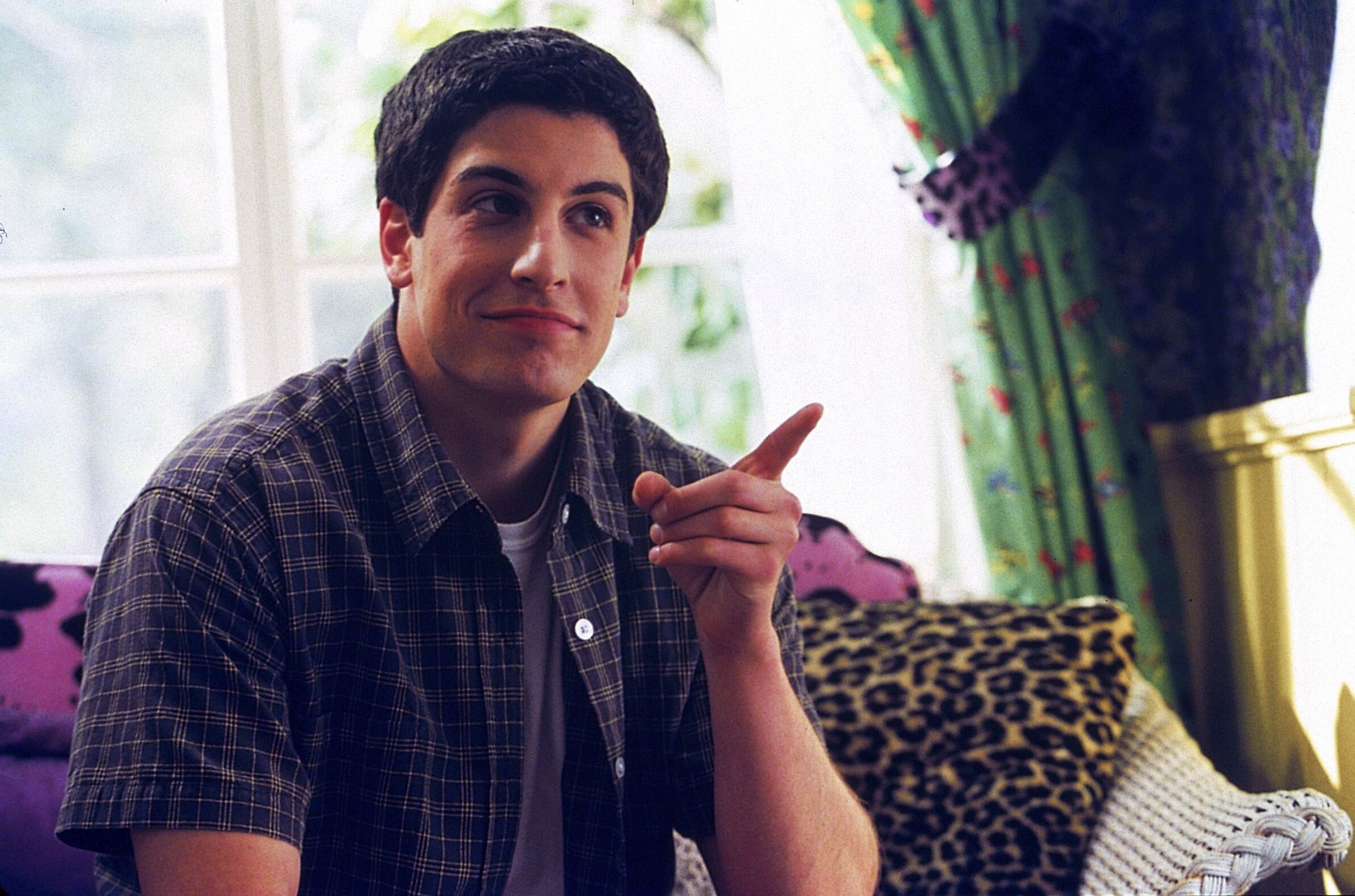There’s a movie scene forever etched into the minds of young adults. It’s probably as vivid as our parents’ recollection of the moon landing, or Maxwell House ads. In American Pie, hopeless high-schooler Jim decides to copulate with an apple tart.
You don’t think he’s going to do it, but he does. And then, because the filmmakers know we’re on the ropes, they show us the mangled remains in the dog bowl.
It’s also a moment that truly embodies the ‘gross-out Teen Comedy’, Hollywood’s fleeting junk food binge that began with the release of American Pie in 1999 to Road Trip, 10 Things I Hate About You, all the way up to 2007’s Superbad. More in the bawdy tradition of Animal House or Porky’s than Breakfast Club.
You can love art house cinema made by Marxist Swedes. But you need junk food in your diet, too. And that was where ‘gross-out’ Teen Comedies came in.
The tropes became so familiar that a spoof film called Not Another Teen Movie was made. It poked fun at the cheerleaders, virgins, and fateful American Football games – often with a hunky, dumb quarterback leaving the final touch-down to chase the love of his life (quirky, shy) before she flies to art school in Paris. In between: profanity, poop jokes, and smut. Even as a teenager in England, I could relate to these American high schoolers. As an adult I feel pity for them (and some affection). Teen Movies are still funny to me, but for other reasons.
None of these films could be made today. Their basic premises would spark outrage from the bored Twitterati. One journalist writes, ‘You need only go back to the early 2000s to find movies that are sexist, racist, and homophobic… They seemed like a good idea at the time, but in hindsight are totally deplorable.’ In other words, the films didn’t change, the times did.
But the teen movie gets high school, or secondary school, totally right. It is a confusing, hormonally-charged jungle, which we look back on with regret and embarrassment – growing pains, awkward interactions with the opposite sex, and unmoving social hierarchies that you wear like a rash. If it sounds awful, that’s because, as many of us forget, it was.
While these films are not perfect, there’s room for some nuance. For the most part, the lead characters are not dominant males but pathetic losers; enthralled to their desires and impulses. But by the end of American Pie, Road Trip, or Superbad, outsmarted by the women they try to seduce, they learn a lesson. Sex is not everything.
It’s different for American Pie: Girl’s Rule. The long-awaited fifth installment recently arrived on Netflix: a rehash of the original, it centres on horny women instead of horny men. The sexual exploits of the cast are presented as emancipation: a form of ‘girl power’ (that’s how the official synopsis actually describes it), and there are no lessons or epiphanies by the credits, except that… girls want sex too.
The New York Times wrote that it offered ‘a naked demonstration of the differences in sexual politics since 1999.’ A teen comedy is ‘girl power’ if it’s about young women pursuing men. The opposite is probably now offensive, and why the original American Pie could never be made today.
Teenagers seem to have different challenges in 2021. Schools were once mostly subcultural, split by music, style, or sport cliques. With social media, they’re now also grouped by political ideology. In a memorable scene from 2012’s 21 Jump Street, two cops are sent undercover to infiltrate a high school. On their first day, the jock of the pair realises something is off. As he tries to impress one popular kid with his car, the student remarks, ‘You don’t care about the environment? That’s kind of f**ed up man.’
If a teen movie was made today, it would probably have more in common with Amazon Prime’s Euphoria (2019): a decent enough show, with identity politics at its core. The characters’ urges are depicted here as glamorous, and their anxieties are almost sexy. It’s safe viewing for a generation that apparently doesn’t enjoy being made fun of. But that doesn’t sound realistic to me.
For most of us in adulthood, being a teenager was so unserious in retrospect that our world-ending anxieties now seem laughable. And they should be. That’s why the teen comedy worked. It reassured us that school wouldn’t last forever, and that it’ll make sense by the credits. At the end of Mean Girls, Lindsay Lohan gives up on being popular, and in Road Trip our hero lets go of his past. American Pie 3 ends with Jim grown up, happily marrying the girl who took his virginity one fateful prom night. That’s a long way from an apple tart.







Comments